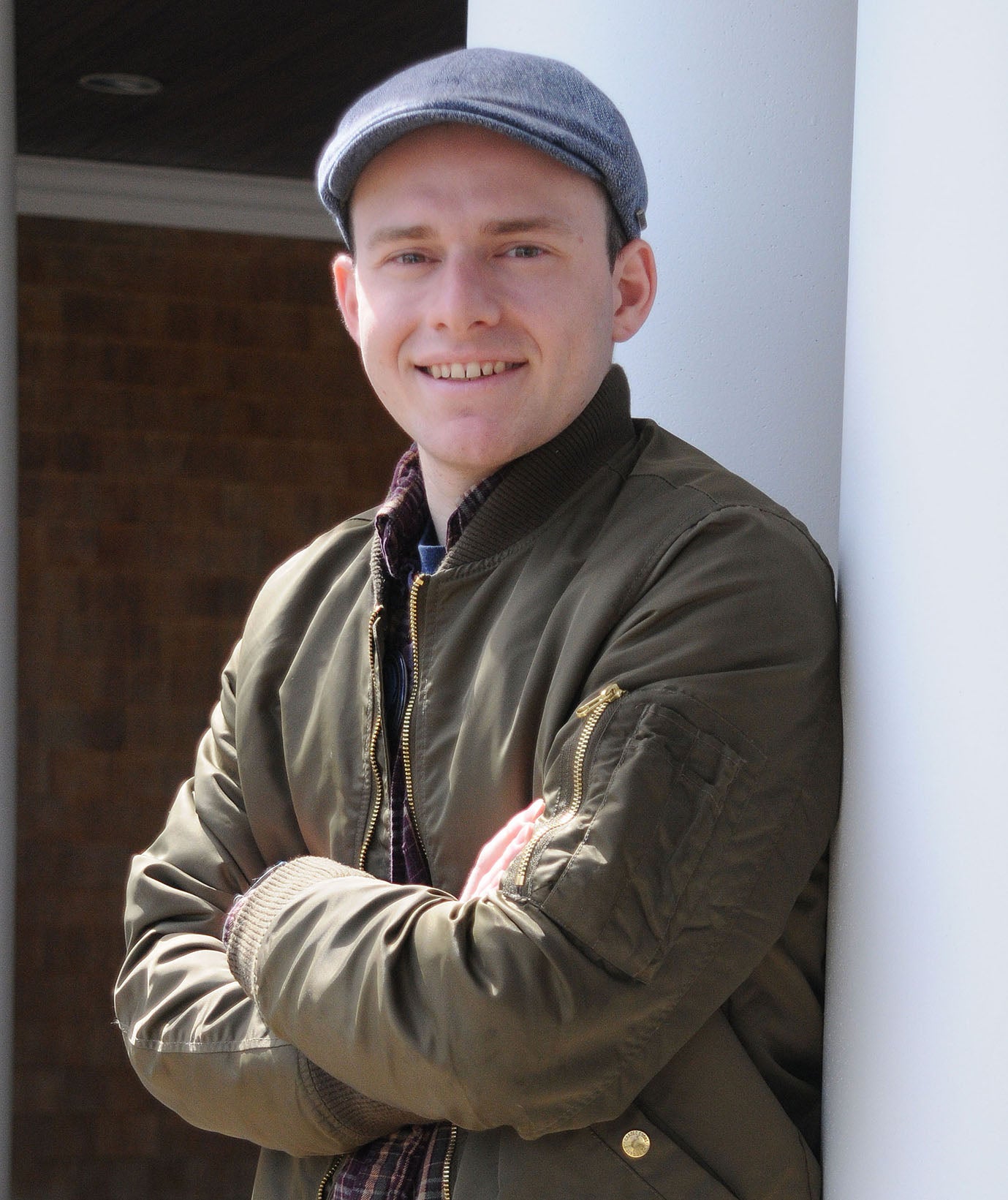KINGSTON, R.I., April 16, 2018—First the lump, then the chemo. Ian Kanterman was too young to understand the gravity of his cancer, but he could see how it was ravaging his 5-year-old body.
He lost his appetite, and his hair. When the time came to go back to school, he wore a bandana to cover his bald head. The kids teased him, and while that bullying could’ve created an angry young man, it didn’t.
“Having cancer taught me to live fuller and more,” says Kanterman. “I try to make the most out of everything put in front of me.”
Kanterman has been celebrating life since he arrived at the University of Rhode Island from Brick, N.J., a working-class community near the Jersey shore. This spring, he’ll graduate from the five-year French International Engineering Program, with degrees in biomedical engineering and French.
“URI has been terrific,” he says. “It helped me grow as a person and student.”
His mother discovered the lump while she was changing him into his pajamas after he fell asleep on his parents’ bed one night. The diagnosis: non-Hodgkin Lymphoma, a cancer that starts in the lymphatic system. Only days later, the spirited boy with a toothy grin and curly blond hair was on an operating table having a cancerous tumor removed.
Two more surgeries and two years of chemo ensued. In the middle of his treatment, he suffered a stroke, paralyzing some of his left side, but he recovered fully and was able to return to school. The bandana he wore was black decorated with green aliens. “I learned that bullying is cruel and misguided,” he says. “They didn’t know any better, and we became friends later.”
The illness spared his beautiful mind, and he excelled in high school, deciding to attend the same college as his big brother, Cameron, a biology major at URI.
Kanterman was leaning toward computer engineering, but at accepted students’ day a professor introduced him to biomedical engineering. A light went off: “I could help people, maybe even a cancer patient.” Things looked even brighter when he learned about the International Engineering Program, which would give him a chance to study and work abroad.
He left his shyness in the halls of Brick Memorial High School. First off, he participated in URI’s Leadership Institute, where he met other budding campus leaders. That led to his involvement with the Student Alumni Association, which led to becoming a tour guide, which led to being an orientation leader, which led to raising money for cancer patients through the St. Baldrick’s Foundation, which led to where he is today: loving—and loved by—friends he expects to remain close to for life.
He’s an excellent student, making the Dean’s List with a grueling course load that has included everything from electronics to cell biology and physiology. Last academic year, he studied at the Université de Technologie de Compiègne in France and interned at the Institute of Image-Guided Surgery in Strasbourg, creating a prototype for a device that quickly treats the blood pressure of trauma patients. He helped pay for his studies with scholarships from the Lester J. & Marie T. King Memorial Scholarship, awarded annually to a student in the College of Engineering who demonstrates academic excellence and financial need, and the Beatrice S. Demers Foreign Language Fellows Program.
“It was a phenomenal experience,” he says. “I got to work with people from Italy, Ireland, the Netherlands, Argentina, Spain and Japan. It was exhilarating.”
One of his most exciting projects at URI is nearly finished. For his senior capstone project, Kanterman and two other engineering students created a silicone wrist that simulates the 28 pulse patterns used in traditional Chinese medicine to diagnose various diseases. Kanterman envisions it as a teaching tool for Western doctors.
“It’s pretty neat,” he says. “We used all the skills we learned in college to develop this. It’s very fulfilling.”
Kanterman has already been accepted to the University of Twente in the Netherlands to earn a master’s degree in biomedical engineering, specifically, neural and motor systems. The university is considered one of the country’s top technical colleges.
“The URI experience has taught me to be bold, brave and grateful,” he says. “URI has been a home away from home, and a haven of learning and self-discovery. I wouldn’t trade the experience for anything.”

